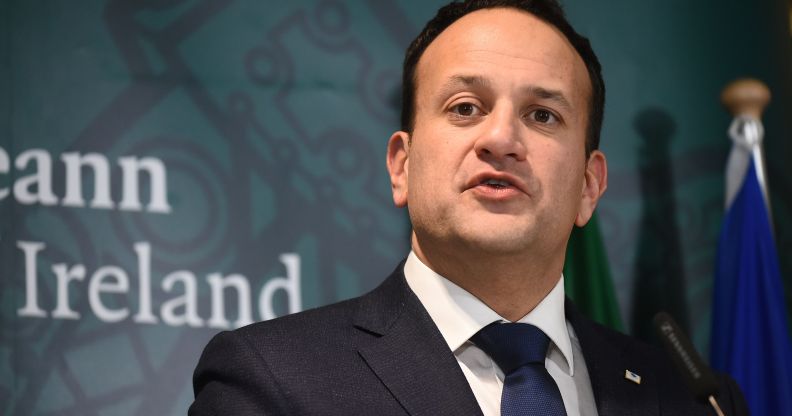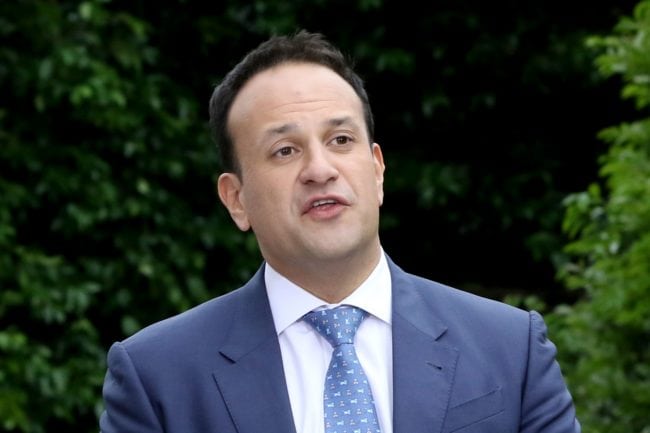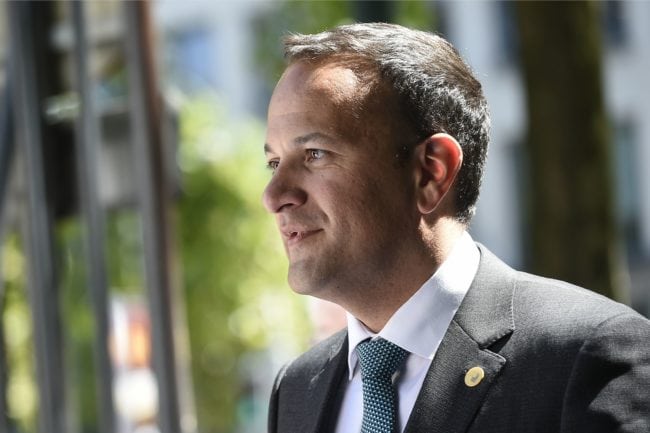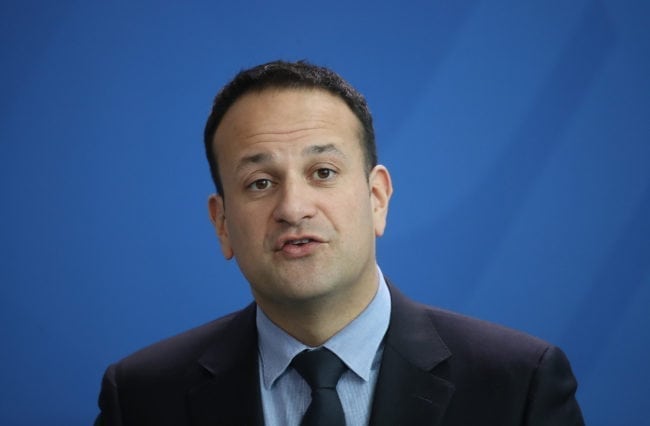Irish leader Leo Varadkar feared outing by newspapers before coming out

Jack Taylor/Getty
A new book charts the rise of Ireland’s mould-breaking gay leader, Leo Varadkar.
Varadkar is one of the few openly gay world leaders, becoming the country’s Taoiseach (prime minister) through a Fine Gael leadership contest in 2017.
The leader had come out as gay in January 2015, while serving as a Health Minister at the age of 36, months before the country’s referendum on equal marriage.

Irish Prime Minister Leo Varadkar (PAUL FAITH/AFP/Getty)
New biography Leo: A Very Modern Taoiseach from former political correspondents Philip Ryan and Niall O’Connor sheds new light on Varadkar’s early life, prior to his decision to come out.
The book details Varadkar’s decision to keep his sexuality a secret from his closest friends and family, sacrificing the chance for romance as he climbed the political ladder.
But following his ascent as a minister in Enda Kenny’s conservative government, his sexuality became a point of private speculation among political reporters and journalists – even as Varadkar was still deep in the closet.
According to the book, Varadkar’s advisers “became nervous as the number of phone calls from journalists enquiring about his sexuality began to increase,” fearful that a story outing him would be published.
One publication published “a suggestive piece about how Leo had been seen out socialising with a male friend… akin to a gossip column,” leading to anxiety in the minister’s office.

Ireland’s Prime Minister Leo Varadkar (JOHN THYS/AFP/Getty)
Luckily for the politician, no newspaper story outing him ever made it to print.
The book also reveals that Varadkar secretly sought counsel from LGBT+ rights campaigner Tiernan Brady while mulling a decision to come out
Brady explained: “We talked about what it would be like to come out in public office, because there are a not a lot of people who have done it.”
He warned Varadkar of potential public blowback due to his credentials in Fine Gael, a conservative party that at the time had a poor record on LGBT+ issues. Varadkar, then one of the party’s more socially conservative figures, had publicly expressed strong reservations about same-sex parenting.

Irish Prime Minister Leo Varadkar (Sean Gallup/Getty)
But Brady told him: “There is a decency in Irish people that we sometimes forget, a real decency.
“They will see this for what it is: somebody taking a really brave step, and it isn’t sad that we have to live in a country where people feel that was a really brave step.”
A friend of Varadkar added that the impending marriage referendum and the politician’s desire to play a part in it also brought the issue to the head, explaining: “How could he champion it and not say he was gay? He’d lose all credibility otherwise.”
Varadkar ultimately decided to come out in a frank radio interview with host Miriam O’Callaghan, after privately informing his family and close friends.
Brady added: “He was coming out to a country. How would that make any one of us feel? How difficult would it be that the very first conversation you have on this is to an entire nation on the radio, to say, ‘By the way, I’m gay’?
“That’s horrendous. No one should have to do it. But he was a Cabinet minister and this was a big deal.”
O’Callaghan had asked Varadkar in advance of the radio interview whether he was planning to come out of gay, and the host pre-planned a question to set up the moment Varadkar could come out.
The interview was largely well received, with hundreds congratulating Varadkar for taking the step.
The book also details the poignant involvement of the leader’s father, Ashok Varadkar, in the ‘Fathers for Yes’ campaign during the marriage referendum despite his conservative Indian upbringing.
Leo: A Very Modern Taoiseach is out now.

